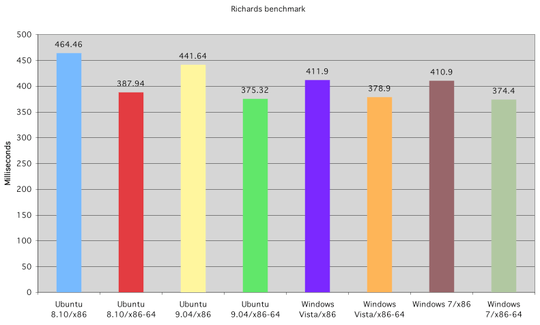-1
I have both a Linux box (running Debian) and a powerful Windows desktop running XP. At work I have a Windows 8 machine.
I notice that my Linux box, even though it is just a little Zotac seems to outperform the XP machine, but I have not done quantitative tests. Given the same motherboard, do Linux boxes run computational applications faster than Windows? For example, if I were to take Mathematica, install on two identical machines, one running Linux, the other Windows XP, and then compute PI to a trillion places or something like that, would the Linux box be noticeably faster than the Windows box?
